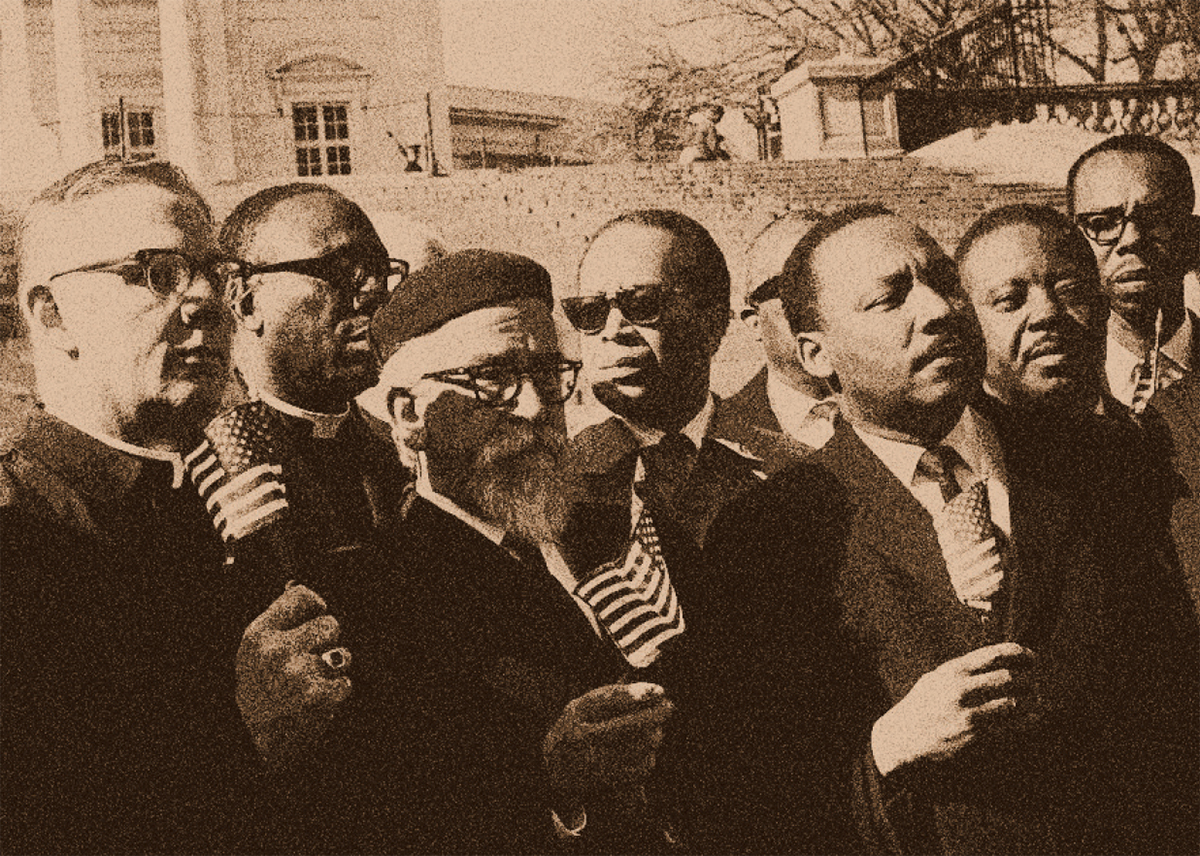'Blacks and Jews in America' explores complex relationship
By Kathy Hovis

There are many words and phrases used to describe the relationship between blacks and Jews in America in the 20th century: golden age, strained, coalition, collaborative, adversarial, contentious, allies.
In truth, all of those characterizations are accurate depending on the time period under discussion, say Rev. Kenneth Clarke, director of Cornell United Religious Work, and Ross Brann, the Milton R. Konvitz Professor of Judeo-Islamic Studies in the Department of Near Eastern Studies.
Clarke and Brann will lead an April 18 event, “Blacks and Jews in America: A Conversation,” at 5 p.m. in Milstein Hall auditorium, in which they will examine the relationship between the two groups and consider what might come next. The audience will play a key part in the discussion.
“I hope this conversation will contribute to our understanding of what it means to be an American and to grapple with issues of racism and anti-Semitism,” said Clarke. “I also hope it might cause some reflection or some stirring that might inform what students and others who attend might do in pursuit of a more just society, a more just Ithaca, a more just campus.”
Brann said the event will give the campus community a chance to step back and think about where they’ve come from.
“We live in a world that moves so quickly that people are unaware of the rich and complex history of this relationship between blacks and Jews in the U.S.,” Brann said. “We lose sight of how we got here and how these past relationships may or may not inform the present.”
Clarke’s interest in the history of black-Jewish relations has grown since his first position as a San Francisco assistant pastor in the 1980s, where his pastor collaborated with a local rabbi to host an after-school tutoring program for black youth of the city’s Fillmore district.
“Our pastor was a civil rights veteran who worked directly with Dr. King and Medgar Evers and the rabbi of Temple Emanu-El and had also marched in Georgia to protest the Klu Klux Klan,” Clarke said. “They wanted to make their efforts concrete, so they planned pulpit exchanges and this after-school program.”
For Brann, “I was a child of the 1960s growing up in San Francisco at a time when there was both a fruitful partnership and when that partnership started breaking down.” During his undergrad years at the University of California, Berkeley, Brann served as a middle school math tutor in West Oakland.
In addition to a general overview of history surrounding the two groups’ relationships, Clarke and Brann will discuss successes to come from the partnership, including the Civil Rights Act of 1964 and the Voting Rights Act of 1965. They’ll also talk about how events like the the rise of the Black Power movement in the 1960s, the Six-Day War of 1967 and the Crown Heights riots in 1991 challenged those ties.
“The identity politics of the late 1960s changed all of American society, including these groups,” Brann said. “It forged different policies, different alliances, different sensibilities about how to participate in the American tableau. It represented a turning point not just for this relationship, but for society across the board.”
Brann said he’ll also share some of Cornell’s history around the issue.
Although it’s impossible to predict what the future holds for relations between the groups, Clarke said there is potential for coalitions to form again, particularly around specific issues or events.
The event is sponsored by the College of Arts and Sciences, Cornell United Religious Work, the Africana Studies and Research Center, the Jewish Studies Program, the American Studies Program, Department of Near Eastern Studies, Cornell Hillel, Office of Academic Diversity Initiatives, Center for Intercultural Dialogue, African Latino Asian Native American, Black Graduate and Professional Student Association, Ujamaa Residential College, and Student and Campus Life.
Media Contact
Get Cornell news delivered right to your inbox.
Subscribe